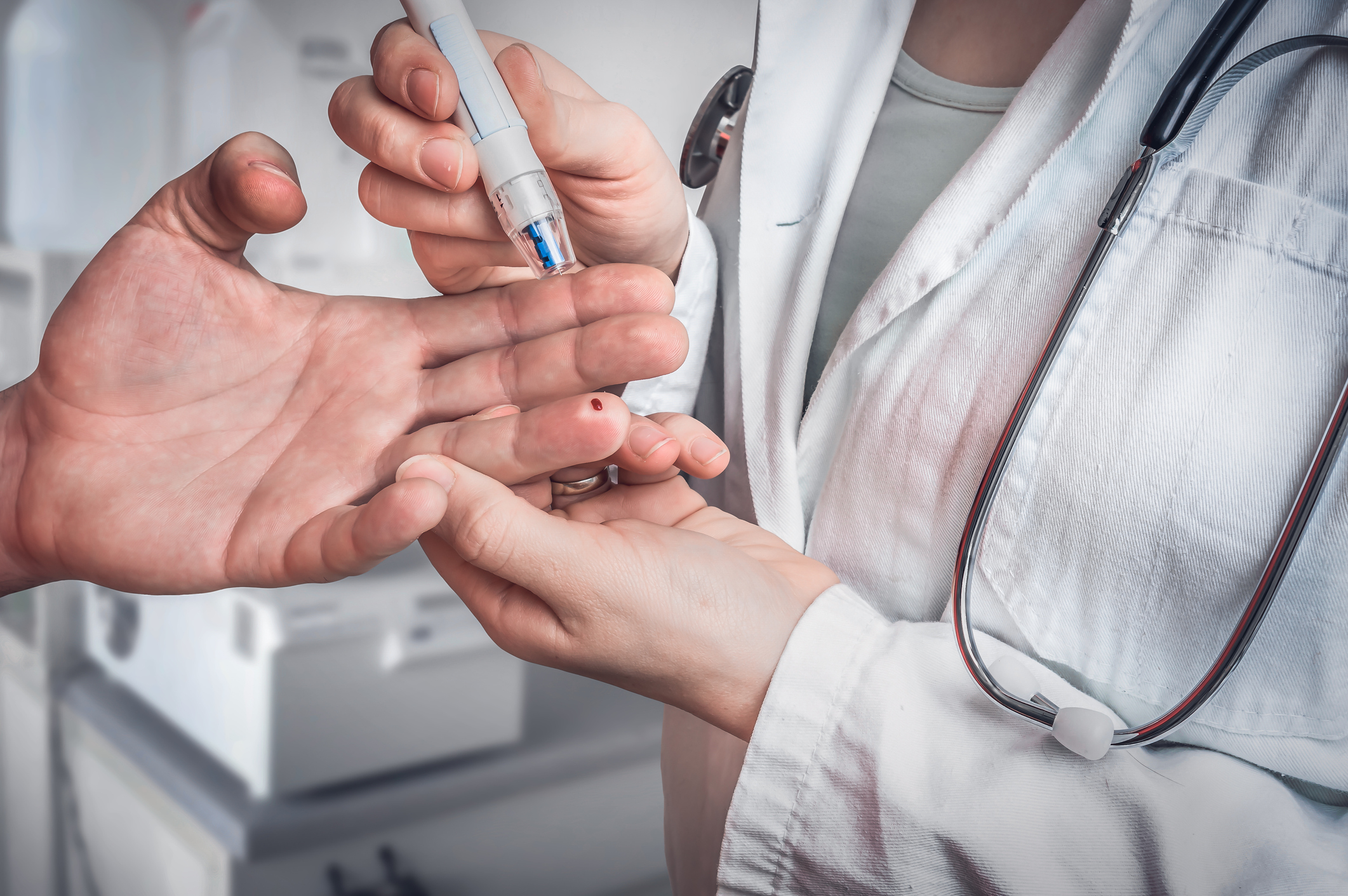Get Easy Health Digest™ in your inbox and don’t miss a thing when you subscribe today. Plus, get the free bonus report, Mother Nature’s Tips, Tricks and Remedies for Cholesterol, Blood Pressure & Blood Sugar as my way of saying welcome to the community!
Could COVID-19 cause diabetes? New evidence says yes…

It’s common knowledge that diabetes, like most other chronic illnesses, puts you at a greater risk for developing a severe case of COVID-19. And if your blood sugar is poorly managed, it could hypothetically put you at a greater risk of contracting the virus as well.
That’s because having high blood sugar (think over 200) can hamper your immune system’s ability to mount an attack against pathogens. Diabetes, more specifically, can impair white blood cell function, and white blood cells are your body’s main defense against infections. Diabetes is also known to trigger chronic inflammation, which can lead to less-than-adequate immune response when a pathogen finds its way into your body.
But according to new evidence, the relationship between diabetes and COVID-19 doesn’t stop there…
It turns out, developing a case of COVID could potentially trigger diabetes in people who didn’t have the disease prior.
The SARS-CoV-2 virus may attack cells that make insulin
A new medical case study reported by Tim Hollstein, a doctor in Germany, shows that COVID-19 can trigger diabetes in some people.
This doctor’s patient was an 18-year-old man named Finn Gnadt who tested positive for the SARS-CoV-2 virus after his parents became sick with it, although he never developed any symptoms. Gnadt thought he had gotten off easy, but things changed a few days later…
He started feeling unusually fatigued and thirsty, so he visited his doctor who diagnosed him with type 1 diabetes. His doctor suspects that the SARS-CoV-2 virus triggered his diabetes. Here’s why…
Type 1 diabetes is an autoimmune disease where the body’s immune cells start destroying beta cells (β-cells) in the pancreas. β- cells are tasked with the important job of producing the hormone insulin, which processes the sugar in your blood and converts it to energy for your body to use. When there’s not enough insulin in your body, you end up with too much sugar in your blood.
Dr. Hollstein thinks that the SARS-CoV-2 virus may have killed Gnadt’s β-cells. He suspects this because there weren’t any of a certain type of immune cells in his blood. These immune cells are known to damage the part of the pancreas where β-cells live. Hollstein thinks their absence from his blood may show that they were used to damage Gnadt’s β-cells.
Hollstein isn’t alone in his suspicions about SARS-CoV-2’s ability to trigger diabetes. There’s a small group of other people who have developed diabetes after having COVID. There have also been dozens of other people who have gone to the hospital with a COVID infection and had unusually high blood sugar levels and ketone levels. Your body produces ketones when it doesn’t have the insulin it needs to break down sugar.
It’s also worth mentioning that this isn’t the first time viruses have been linked to the development of type 1 diabetes. In fact, a virus that’s closely related to SARS-CoV-2 — the virus that causes severe acute respiratory syndrome (SARS) — has also been linked to autoimmune conditions, including type 1 diabetes, in some people.
In addition, there was a recent laboratory study that found SARS-CoV-2 did attack cells that control blood sugar in a lab-grown pancreas.
We still don’t have all the answers about diabetes and COVID-19
At this point, there’s a lot we don’t know about SARS-CoV-2’s ability to trigger diabetes. There needs to be more research on large groups of people to really understand this connection.
But in the meantime, the possibility that SARS-CoV-2 can potentially lead to long-term health problems like type 1 diabetes is good motivation to do everything you can to keep yourself healthy. That includes social distancing, wearing a mask, frequent handwashing and taking good care of yourself, so your immune system stays strong.
Sources:
- What Infections Are You at Risk for With Diabetes? — Verywell Health.
- How COVID-19 Impacts People with Diabetes — American Diabetes Association.
- Mounting clues suggest the coronavirus might trigger diabetes — Nature.
- How insulin works — Kaiser Permanente.
- A Human Pluripotent Stem Cell-based Platform to Study SARS-CoV-2 Tropism and Model Virus Infection in Human Cells and Organoids — Cell Stem Cell.













